The diversity crisis at the world’s most influential think tank
If the Bilderberg Group refuses to change, it has no business playing any part in 21st-century politics and decision-making, writes Charlie Skelton

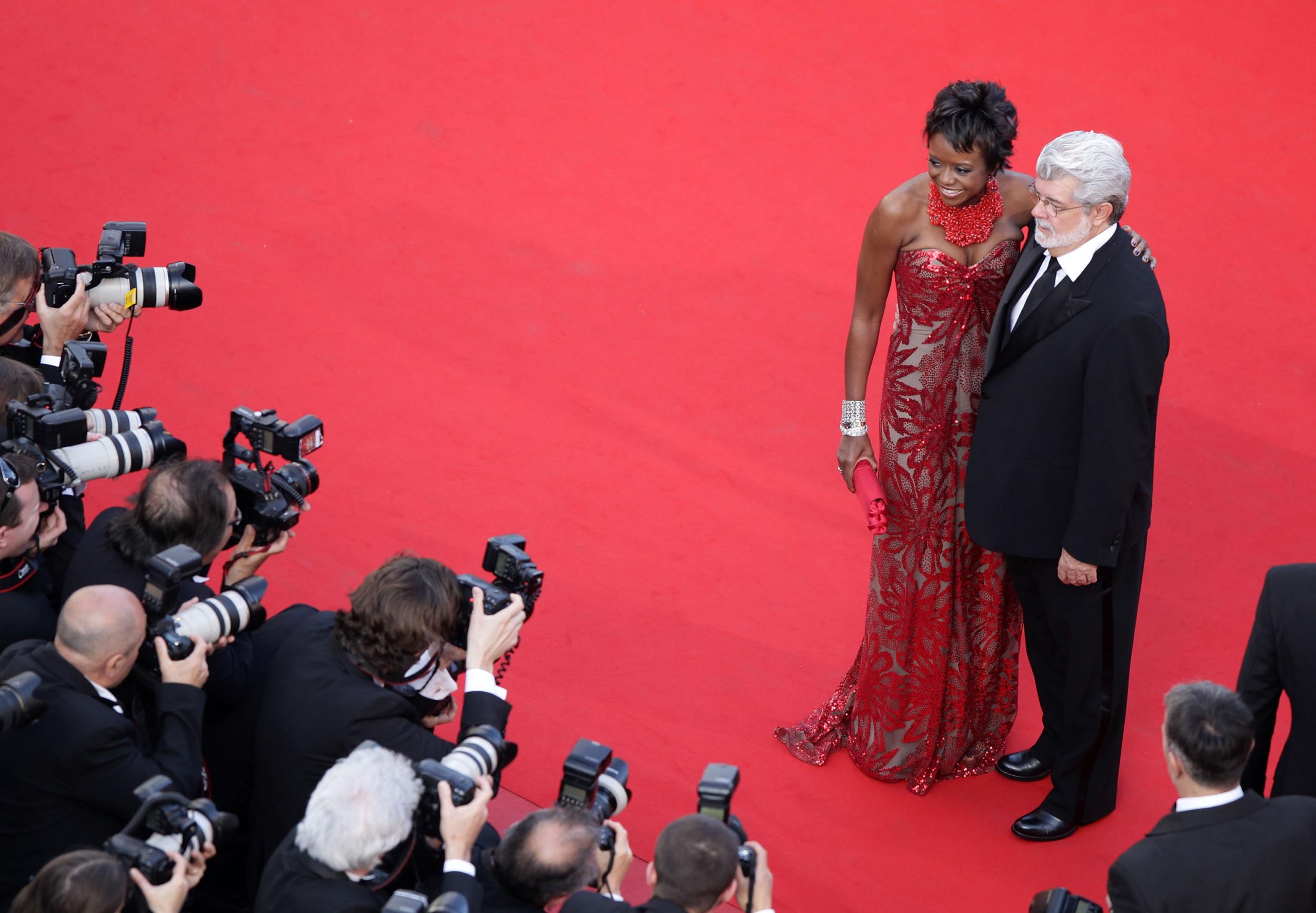
When Mark Carney took over at the Bank of England in 2013 he was the first foreign governor in its history. The Financial Times described him as “the new broom”. The Independent dubbed him a “dark horse”. Yet Carney saw himself as not so very different from his predecessors. As he said in a speech last year: “I’m the 120th in a very long line of male, white governors of the Bank.”
While in office, Carney spoke out about the importance of racial diversity in organisations. At a Bank of England workshop on “Investing in Ethnicity and Race”, he stressed the value of “diverse decision‐making bodies”, warning that “homogenous groups are vulnerable to over-optimism, bias and groupthink”. And yet, since leaving Threadneedle Street, Carney has been quietly elected to one of the most eerily homogenous decision-making bodies in the world: the steering committee of the Bilderberg Group.
This influential forum held its first conference in Holland in 1954, under the chairmanship of Prince Bernhard of the Netherlands, and is still going strong. The organisation is run by a steering committee packed with billionaires, corporate CEOs and oil company directors; 34 global notables, including the editor-in-chief of Bloomberg, the president of the World Economic Council and the chairman of Goldman Sachs International. A giddying amount of wealth, talent and power – but somehow there’s only one black person, the high-profile investor, diversity campaigner, and wife of George Lucas, Mellody Hobson.
The vice chair of Starbucks and co-CEO of a $10bn investment company, Hobson is a trailblazer in the world of diversity. She was the first black woman to become a director of US banking giant JPMorgan Chase and the first to be elected president of the Economic Club of Chicago. She’s spoken many times about the importance of seeing colour in boardrooms, insisting that “colour blindness means to me we’re ignoring the problem”. One of Hobson’s favourite business mantras is to look around and ask: “is everyone in the room?” I think it’s fair to say that in the Bilderberg boardroom the answer is a thundering “no”.
When Hobson walks into a Bilderberg steering committee meeting it must feel like a scene from the film Get Out. But as Hobson says, when it comes to diversity, “you need actual numbers as opposed to speaking in generalities”, because “the numbers don’t lie”. In actual numbers then, and counting the dapper Turkish billionaire Ömer Koç as non-white, you have a 34-person steering committee which is a staggering 94 per cent white. Hobson is the only black member, and in the 66-year history of the group there’s only ever been one other black person elected to this committee: the lawyer and businessman Vernon Jordan. Jordan left the Bilderberg steering committee in early 2011. Bilderberg waited until mid-2017 before giving Hobson a seat at the table.
The gender diversity numbers are bad, if not quite so dreadful. Of the 34 people on the governing board, a rather underwhelming eight (or about 24 per cent) are women. By comparison, the proportion of female directors on FTSE 100 boards in 2019 was 32 per cent. The Bank of England’s court of directors is 46 per cent female (six women out of 13). Starbucks manages a hefty 38 per cent. Even JPMorgan Chase gets to 30 per cent.
Rising from 8 per cent female in 2010 to the current 24 per cent is better than nothing, but there’s been no parallel improvement in racial diversity. As Hobson points out, “the number one beneficiary of diversity initiatives in our country have been white women”, so “you can’t just carry this one flag and say ‘I have diversity now’.” You have to keep the conversation focused on “underrepresented minorities”.
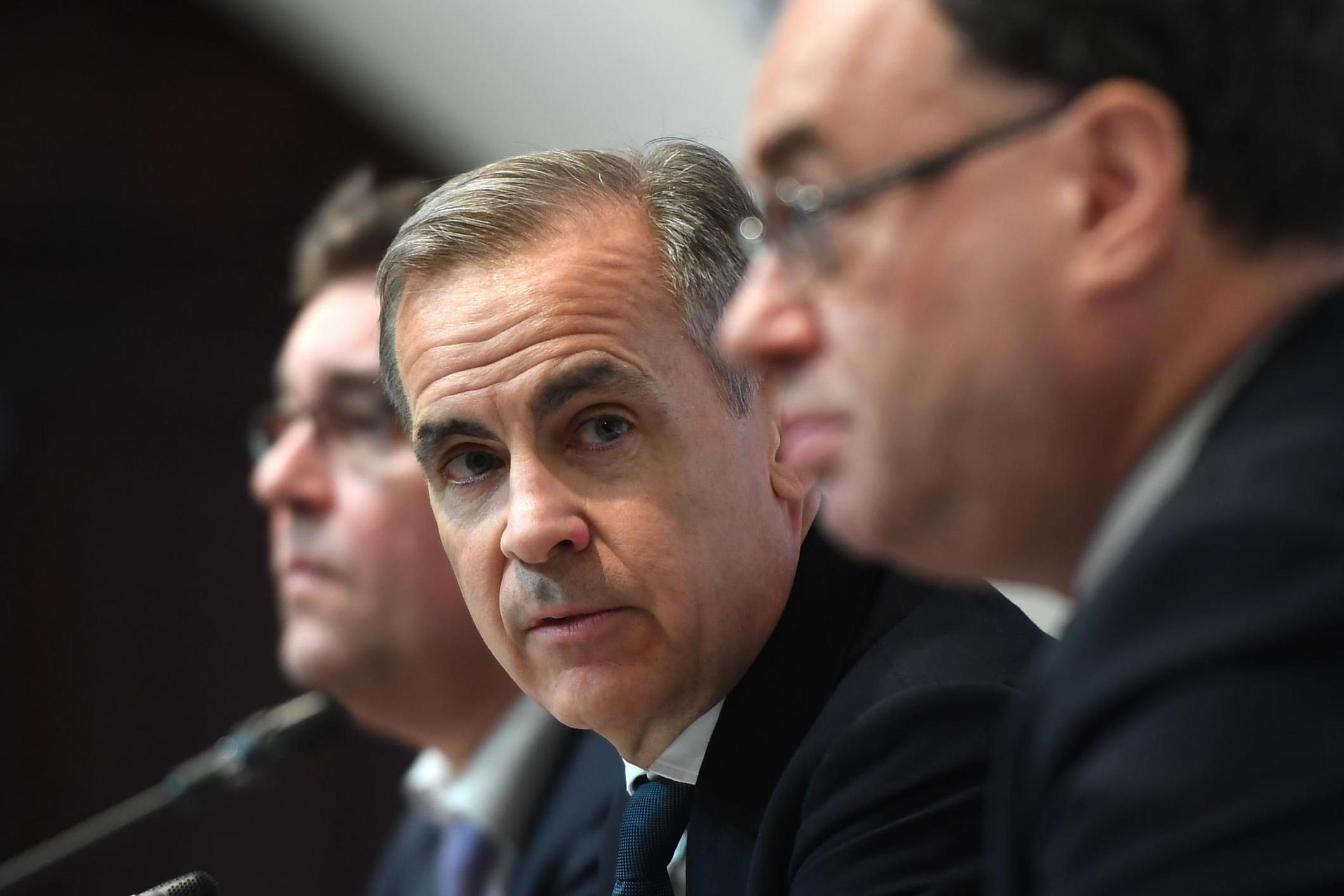
Perhaps the most troubling bit of data is this: the last six people appointed to the steering committee have all been white men – the most recent of which was Carney. In other words, Bilderberg has had plenty of opportunity to change over the past few years, but seems to have little interest in doing so. To me it seems that they’re solidly entrenched in the whiteness of their leadership.
“It is difficult to attribute the absence of diversity in this group to anything other than intentional omission,” says Dr Maya Beasley, director of Diversity 360 at the University of Maryland. Because as everyone knows, “there are lengthy lists of black and Latinx millionaires, billionaires, business icons and thought leaders in the US and Europe”. Mellody Hobson is a high-flying financier in her own right. No one could say she doesn’t deserve her seat at the top table, but you do have to wonder why she’s the only black business icon to get the nod. Is it because she’s the wife of a white billionaire? Or a trustee of the blue-chip Rockefeller Foundation? For whatever reason, Hobson has been accepted into the club, but how long will she be able to accept the club’s racial makeup?
And what about the politicians (and there are plenty) who attend Bilderberg’s annual conference? They might not be so eager to accept an invitation from a committee that looks more like a flashback from the 1950s, when the group was set up, than the board of a 21st-century think tank.
Inviting guests to the group’s prestigious annual three-day conference is one of the main functions of the steering committee. According to Bilderberg’s website, the members of this committee “prepare the meeting’s programme as well as the selection of participants”. The committee controls the agenda and the participant list; they get to decide what subjects will get discussed and by whom.
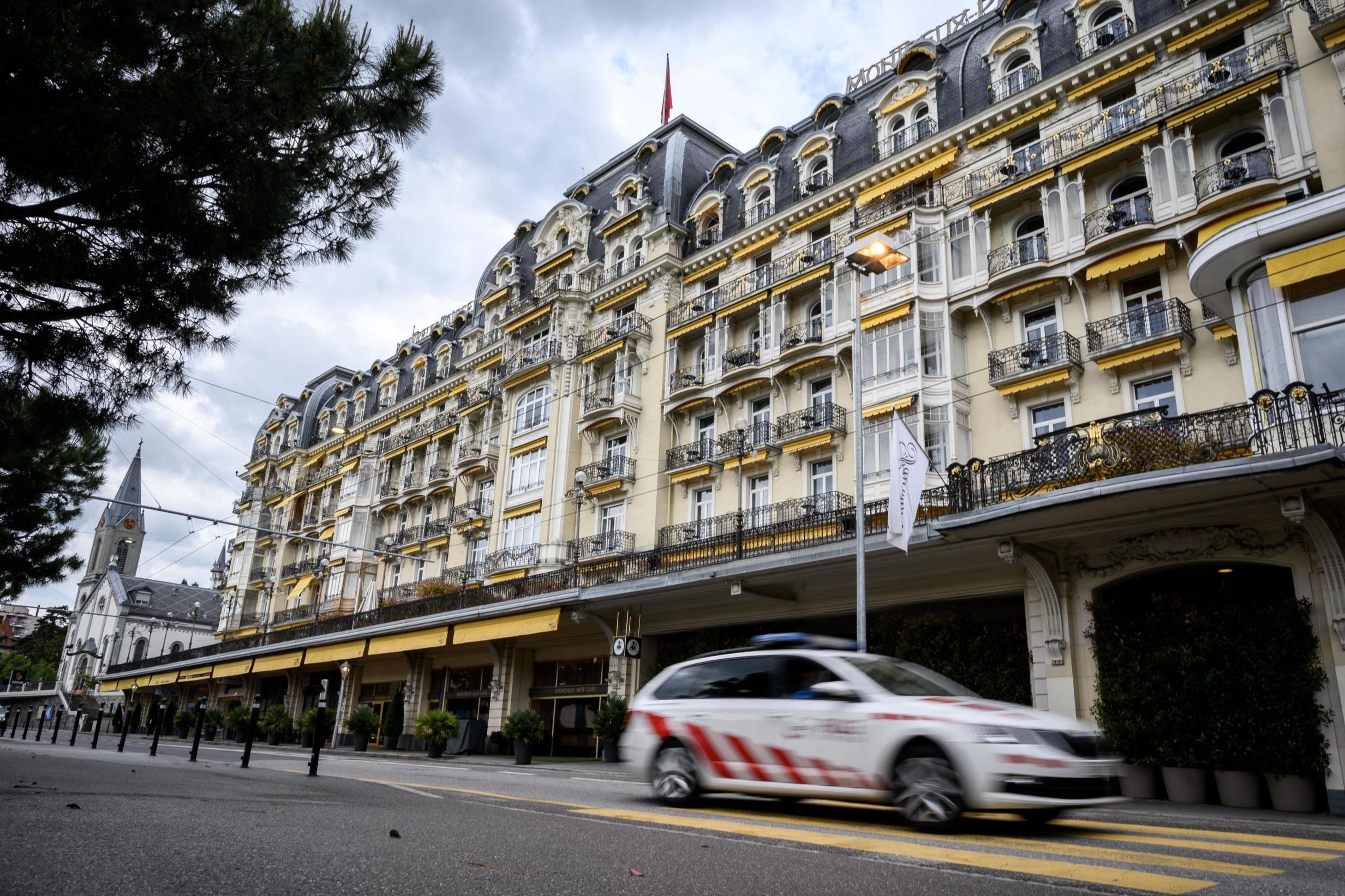
This takes a bit of unpacking. The participant list is a hefty mix of public and private sector power. At last year’s conference in Montreux, the heads of huge corporations and finance houses such as BP, AXA, Total, Microsoft and Credit Suisse were rubbing shoulders with high-ranking politicians and public officials. The secretary general of Nato was there, along with the leaders of Unesco, GCHQ, the WWF and the LSE, and two prime ministers. And Mark Carney, of course, who attended with Bank of England staff in tow. There was the usual weighty clutch of cabinet ministers, MPs and party leaders from around Europe – while the US contingent included two senior members of Trump’s National Security Council, the Defence Department’s top military strategist and Jared Kushner.
Halfway through the summit, the US secretary of state, Mike Pompeo, rolled up in a giant convoy to give a keynote speech, so the Trump administration was extremely well represented. Incidentally, every single representative from Washington was a white male. (Having said that, even Trump’s cabinet is more diverse than Bilderberg’s board, and that’s a low bar.)
The point is that Bilderberg doesn’t operate in some kind of ethereal intellectual realm where race doesn’t matter: it’s plugged in at the very highest levels of transatlantic politics. In fact, one of the group’s steering committee members, Radoslaw Sikorski, is an elected MEP and chairs the EU parliament’s delegation for relations with the US. As Sikorski will know, the motto of the EU is “united in diversity”. Bilderberg doesn’t have an official motto. Perhaps because “united in anachronistic racial imbalance” would look a bit unwieldy on their letterheads?
There is an abundance of academically rigorous research that shows that diversity (racial and gender respectively) have positive effects on the bottom lines of a variety of things including creativity, innovation, corporate responsibility, business revenue and profits
Over the years, the annual conference has become marginally more diverse than the governing committee, but not by much. Look at last year’s event in Montreux: there were 33 Americans present at the talks, of which four were non-white (about 12 per cent), and those four included Mellody Hobson and Vernon Jordan, and one of the other two, Microsoft CEO Satya Nadella, sits on the board of Starbucks with Hobson, so you could hardly say they were were reaching out. Bilderberg itself says the conference represents “a diverse mix” of people, which is a bold claim. Although maybe they mean “in comparison with our steering committee”.
The packed three-day agenda tends to be a mix of foreign policy and big socio-economic issues, things like jobs and technology, populism and debt – issues that directly affect the everyday lives of millions of people. Or in Bilderberg’s own words, “current issues of public policy” debated by “decision-makers and opinion-formers”. In 2019 the agenda included “the future of capitalism”, Brexit and “the weaponisation of social media”, as well as pressing geopolitical issues like “the future of Europe”, which was discussed by seven German delegates, of which an impressive seven were white.
“It is a travesty for a global think tank to not be as diverse as humanity,” says Ibram X Kendi, founding director of Boston University’s Centre for Antiracist Research. Professor Kendi insists that “to solve our most pressing human challenges, we need policies that situate the best minds at the thinking table”.
Immigration expert Sharmila Mehta, who’s a partner at Keystone Law in the UK, asks: “How can they seek to represent any part of North America or any country in Europe with such poor representation?” The same point was made recently by Mellody Hobson regarding diversity targets in organisations: “I think the representation should somehow square with our representation in the country, and it is that simple.”
The primary aim of the annual conference, says the group, is “to foster discussion and dialogue”, but just because dialogue is taking place doesn’t make it automatically a good thing. Dialogue doesn’t have some kind of intrinsic social benefit – especially when it’s off-the-record dialogue between the German defence minister and the CEO of Thales (the world’s eighth-largest arms company). And this dialogue doesn’t happen in some kind of sociological vacuum. It is meticulously managed and “steered” by a committee which is coming from a place of almost undiluted whiteness, and administrated by a secretariat in Leiden which is entirely white. The only media representative of the group is a white male. In its all history there have been only nine chairs of the committee – all white men apart from one white woman (the wife of a white billionaire) – and 12 honorary secretaries general, all white men.
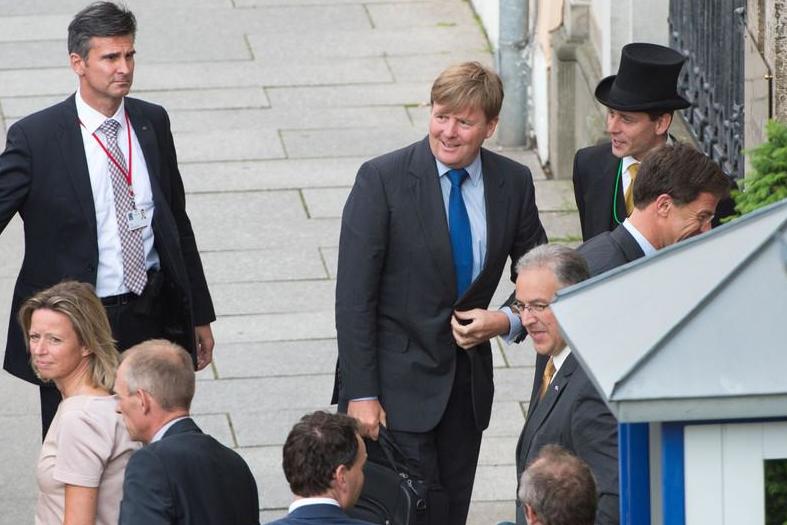
In short, from what I have seen Bilderberg is structurally biased: racial bias is built into the organisation from the top down. The group says that “in the context of a globalised world, it is hard to think of any issue in either Europe or North America that could be tackled unilaterally”. But there’s something undeniably “unilateral” about a major NGO operating in “a globalised world” with a steering committee that’s so unabashedly white, a leadership that is coming from a place of ingrained white privilege.
This year we’ve seen structures of racial bias being challenged around the world. We’ve seen corporations apologising for past profits derived from empire and oppression. Only recently, the Bank of England apologised for its “inexcusable connections” with the slave trade.
Other companies have lent their voice to activism. Ben and Jerry’s ice cream, for example, issued a powerful pledge to “dismantle white supremacy”, urging America to “take responsibility for its past”. However, the company perhaps didn’t realise the irony buried in its bold declaration. Ben and Jerry’s is a wholly-owned subsidiary of Unilever, the gigantic Anglo-Dutch consumer goods company. Back in the 1950s, Unilever was run by the Dutch industrialist Paul Rijkens, who was one of the handful of founders of Bilderberg, and the company’s directors have a long history of involvement with the group, right up to the present day.
And as for “taking responsibility for its past”, the British half of Unilever was the manufacturing company Lever Brothers, which, through its Belgian subsidiary Huileries du Congo Belge, used forced labour on its palm oil plantations in the Belgian Congo between the years 1911 and 1945. So if Ben and Jerry’s is serious about dismantling white supremacy and not just posturing for Facebook likes, they know where to start.
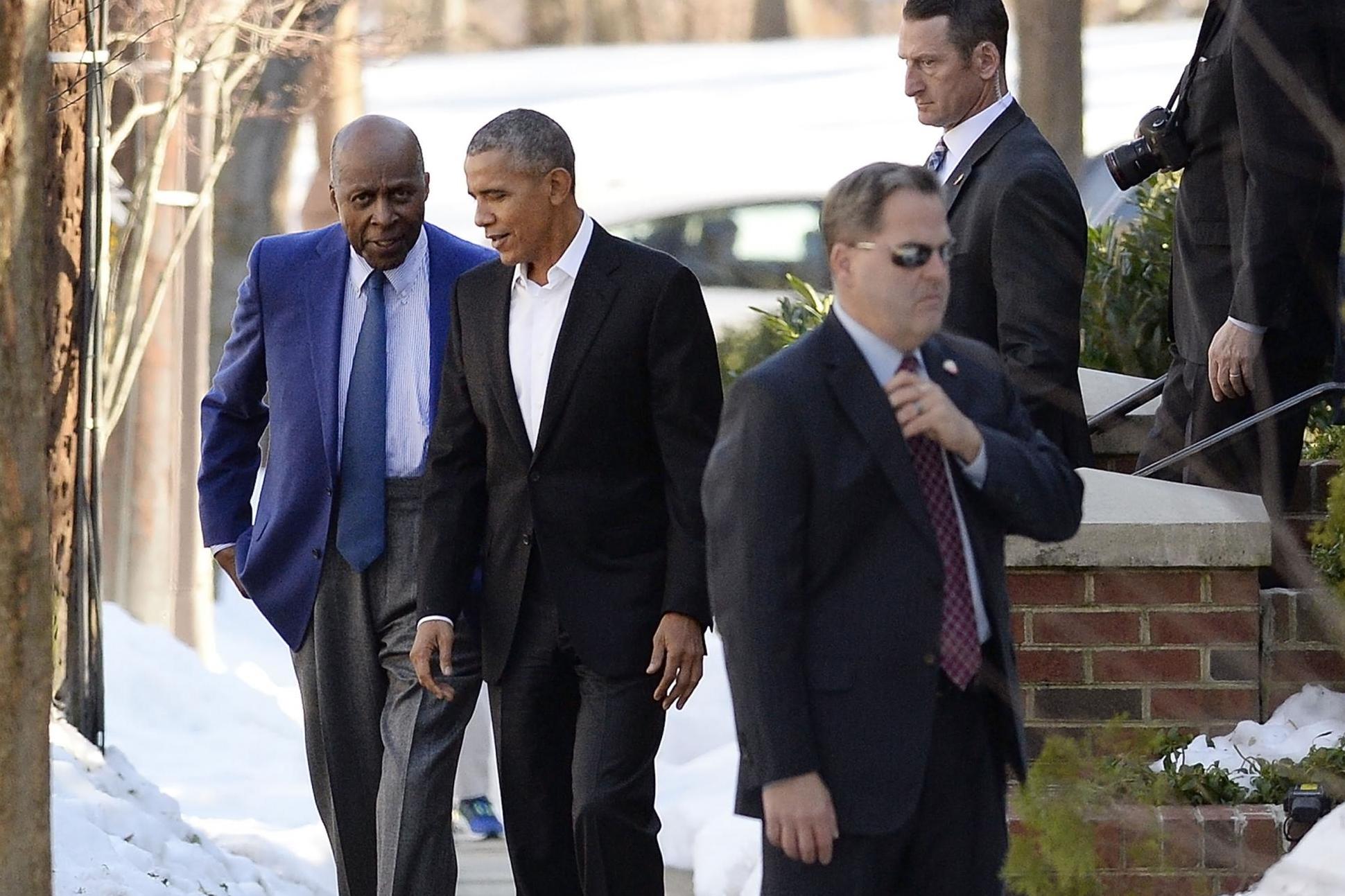
“The lack of diversity of the group is something that deserves attention,” agrees Dr Aya Ezawa, diversity officer at Leiden University. Diversity, she says, opens up “a different way of engaging in dialogue”. In fact, if you’re looking around the table, and everyone looks the same, it doesn’t matter how brilliant you all are, you aren’t the “best minds”, because diversity isn’t just socially appropriate or good optics, it’s something that in itself raises the quality of the thinking. As Mellody Hobson says, “this is not a feelgood thing … studies show that corporate boards compiled of people with varied backgrounds and identities tend to outperform those without that diversity”.
Maya Beasley agrees: “There is an abundance of academically rigorous research that shows that diversity (racial and gender respectively) have positive effects on the bottom lines of a variety of things including creativity, innovation, corporate responsibility, business revenue and profits.” That’s why, as Hobson says, “at Ariel Investments, we view our diversity as a competitive advantage”. With its conference, Bilderberg aims to address “problems of critical importance” in the world – you think they’d consider using diversity as a tool in this process, because, as Dr Beasley points out, “bringing people to the table with different perspectives and approaches is highly effective for problem-solving.”
Diversity can benefit the whole of an organisation, including the boardroom. Aya Ezawa says: “Research shows that diverse management produces better results.” Mark Carney agrees – he talked to Bloomberg in 2018 about the “modern way of managing an organisation” in which “the decision-making process tends to be less hierarchical, more inclusive, more diverse”. Carney is adamant on this point: “Greater diversity leads to better decision-making.”
It is a travesty for a global think tank to not be as diverse as humanity
It’s not just that diversity is a boon; a lack of diversity can be a problem. Homogenous organisations, Carney warned in his ethnicity workshop, “easily become rigid” and are less able to deal with uncertainty. Beasley says: “There are robust analyses that show that groups that are overly embedded and have too many overlaps underperform.”
And yet despite this, Bilderberg seems intent on increasing its overlaps. Unashamedly electing a bunch of identikit white elites like Carney (a conference veteran since 2011), and the presidents of the World Economic Forum and the Carnegie Endowment, is just adding like to like. The founder of Davos, Klaus Schwab, is a former steering committee member, and Carnegie has been closely entwined with Bilderberg since the 1950s. To me, these appointments are the opposite of outward-looking.
According to Dr Beasley: “Research also shows diminishing returns of overly embedded social and professional networks amongst organisational leadership – if folks are too tied to one another, bringing on another close tie adds no value. In fact, it deters innovation. They’d be better off inviting genuine newcomers (in this case, more people of colour, more folks from the Muslim diaspora, more women), especially ones they potentially feel do not ‘fit in’ to tackle the very serious issues this group purports to handle.”
Mellody Hobson believes that “enlightened self-interest” should be enough to drive an organisation to embrace diversity, “to the extent that diversity is not there, you can’t be as successful as you could be… you’re limiting your own self-interest.” And she issued this stark warning: “If you believe you are a 21st-century company, and you are not diverse, you are committing corporate suicide.
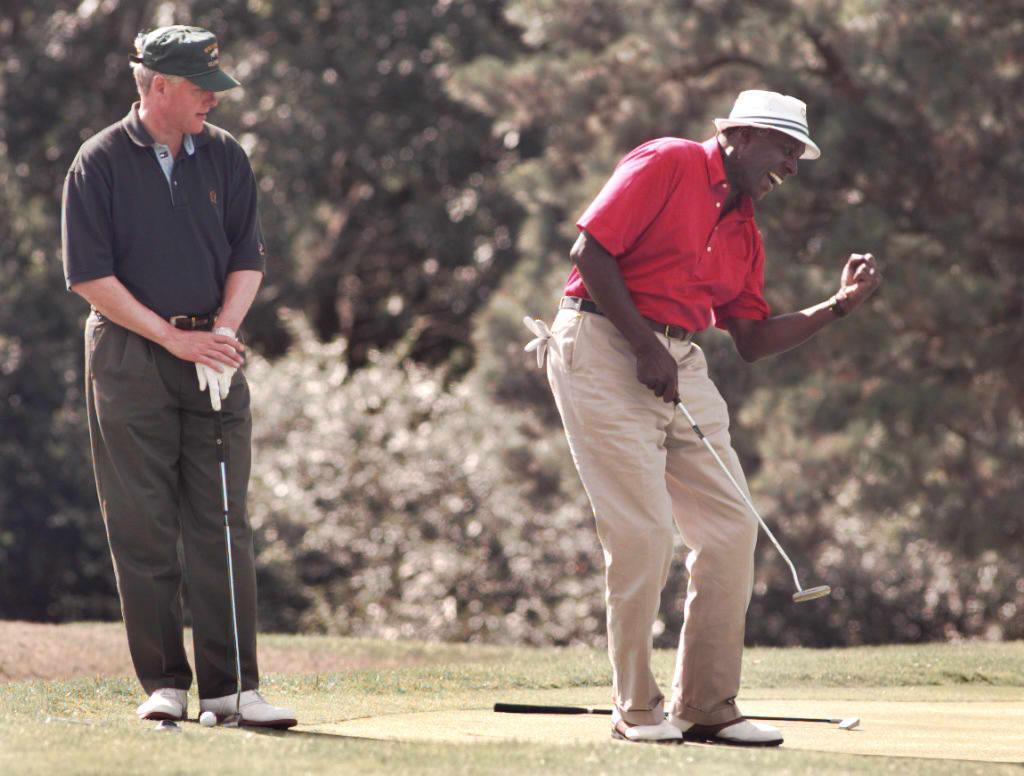
But here’s the thing: the Bilderberg governing board is not a bunch of dimwits in the business of limiting their self-interest or committing acts of commercial self-harm. They are tech billionaires and corporate CEOs; people who run giant industrial conglomerates like Fiat; the heads of Deutsche Bank, Banco Santander and Goldman Sachs International. Board members of BP and HSBC and Facebook. Eric Schmidt used to run Google. They’re top drawer business minds.
And Bilderberg is an organisation that’s operating at the very top of its game: transatlantic politics. This is a game that it’s been playing, and winning, since the very first conference in 1954. When they elect people to their steering committee it is the very opposite of an idle whim. These people are strategists. And not just any old two-bit strategists; these are ice-cold, ruthless, brilliant strategists. So what on earth is their strategy? And why does it seem to require a leadership with such a “last century” racial mix?
“This is a really old-school kind of cold-war type organisation,” says Tommy J Curry, professor of Africana philosophy and black male studies at the University of Edinburgh. The committee and the conference, the faces and the format have changed incredibly little over the decades. So what have they been up to all these years? Professor Curry wonders: “What end is there? Is it war profiteering? Is it technological advancement for profit over lives? It is to maintain that certain groups remain in control?”
As for profit, it’s hard to believe that financial gain isn’t at least a factor in the group’s aims and activities. The steering committee is a Who’s Who of bankers and billionaires, and the participant list of any conference (you can find them on the group’s website) is generously peppered with super-rich asset managers, private investors, venture capitalists and bank CEOs. A bunch of brutally focused financiers, for whom time is money, have cleared their crazy schedules for a whole three days to take part in these discussions. They’ve not flown in for a nice buffet and a Ted Talk.
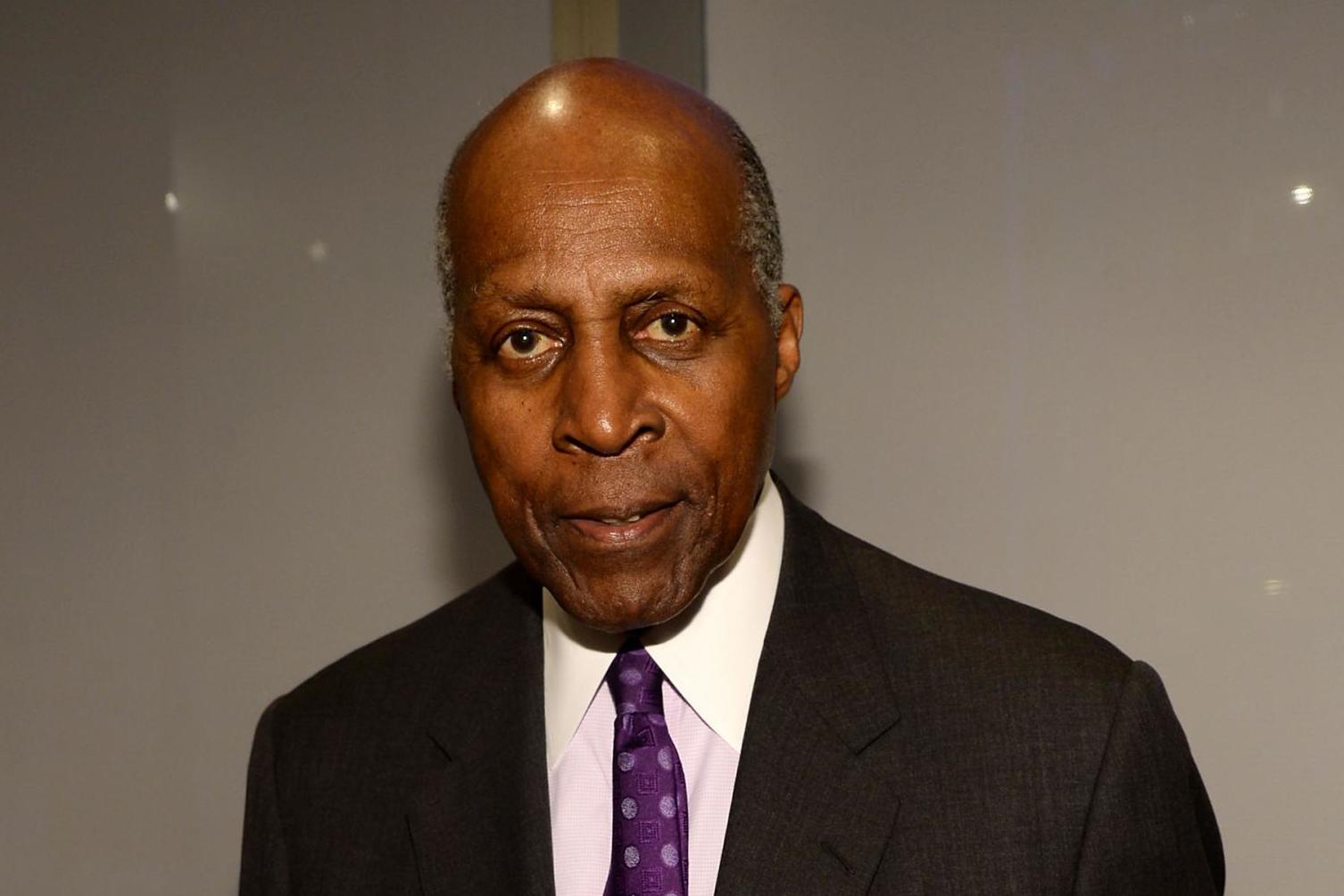
But it’s not as simple as making a quick buck, getting a juicy tip-off about the world markets from a high-flying financier. Perhaps a better way of thinking about it is that Bilderberg bankers, industrialists and media tycoons are invested, heavily, in keeping the whole socio-economic “system” on track. Keeping the wheels on the wagon. Ensuring continuity of profit, rather than making a few extra million over cocktails. As Curry says, the members have “shared interests and shared perspectives” and can “create the consensus necessary to make those interests and perspectives an international reality”. This, after all, is an economic system and a transatlantic political structure that’s been treating them (and their corporations, and families) pretty well over the decades. And here, I think, we’re getting close to why Bilderberg appears to be so resistant to change.
Consider the lead item on the agenda of last year’s conference in Montreux: “A Stable Strategic Order.” The group typically concerns itself with this kind of big picture stuff, like “the international order”, and problems of “global trade” and “global governance”. Back in 2007, top of the conference agenda was “The New World Order”.
This is how Bilderberg thinks: in terms of world order, stability and chaos, shifts of power on the global stage. And if you were to encapsulate all of this long-term, wide-focus strategising into a single individual it would be the person who is still, even today, at the age of 149, or whatever he is, growling away at the heart of Bilderberg: Dr Henry Kissinger.
Research also shows diminishing returns of overly embedded social and professional networks amongst organisational leadership – if folks are too tied to one another, bringing on another close tie adds no value. In fact, it deters innovation
Believe it or not, Kissinger’s first Bilderberg conference was in 1957. And there he was last year in Montreux, 62 years later, being clucked over by Eric Schmidt. They’re not big on turnover at Bilderberg. The group has a long tradition of what you might call “continuity of governance”. The current chair of the Dutch foundation that runs Bilderberg, Victor Halberstadt, first attended in 1975. He co-chairs the group’s governing board with Marie-Josée Kravis, who’s on the board of LMVH and first attended Bilderberg back in 1989.
There are several dynastic sub-groups within Bilderberg, resilient clusters of power, who certainly seem keen to “remain in control”. A few examples: there’s Fiat and the Agnelli family (John Elkann is the latest scion); the Wallenbergs of Sweden; the Rockefeller banking, oil and political interests; and of course you’ve got the Dutch royal family with its close links to Royal Dutch Shell. These are nodes of (white) wealth with long roots. Another longstanding strand is the transatlantic military and secret services, often represented at conferences by the very non-diverse leadership of Nato and Shape, along with senior members of the American, British and other European intelligence agencies.
None of these groups, families or functionaries, these stable sub-sets of power and capital, are historically diverse. And many of them have roots trailing back through the generations into the old structures of empire: industrial and military alliances and colonial wealth.
Back in the early Seventies when Kissinger was national security adviser(which overlapped with his later becoming secretary of state) he spoke of how he was moving towards “a global conception” of structure. At the core of his vision for a “world community” was the Atlantic Alliance: “The historic opportunity for this generation is to build a new structure of international relations for the decades ahead. A revitalised Atlantic partnership is indispensable for it.”
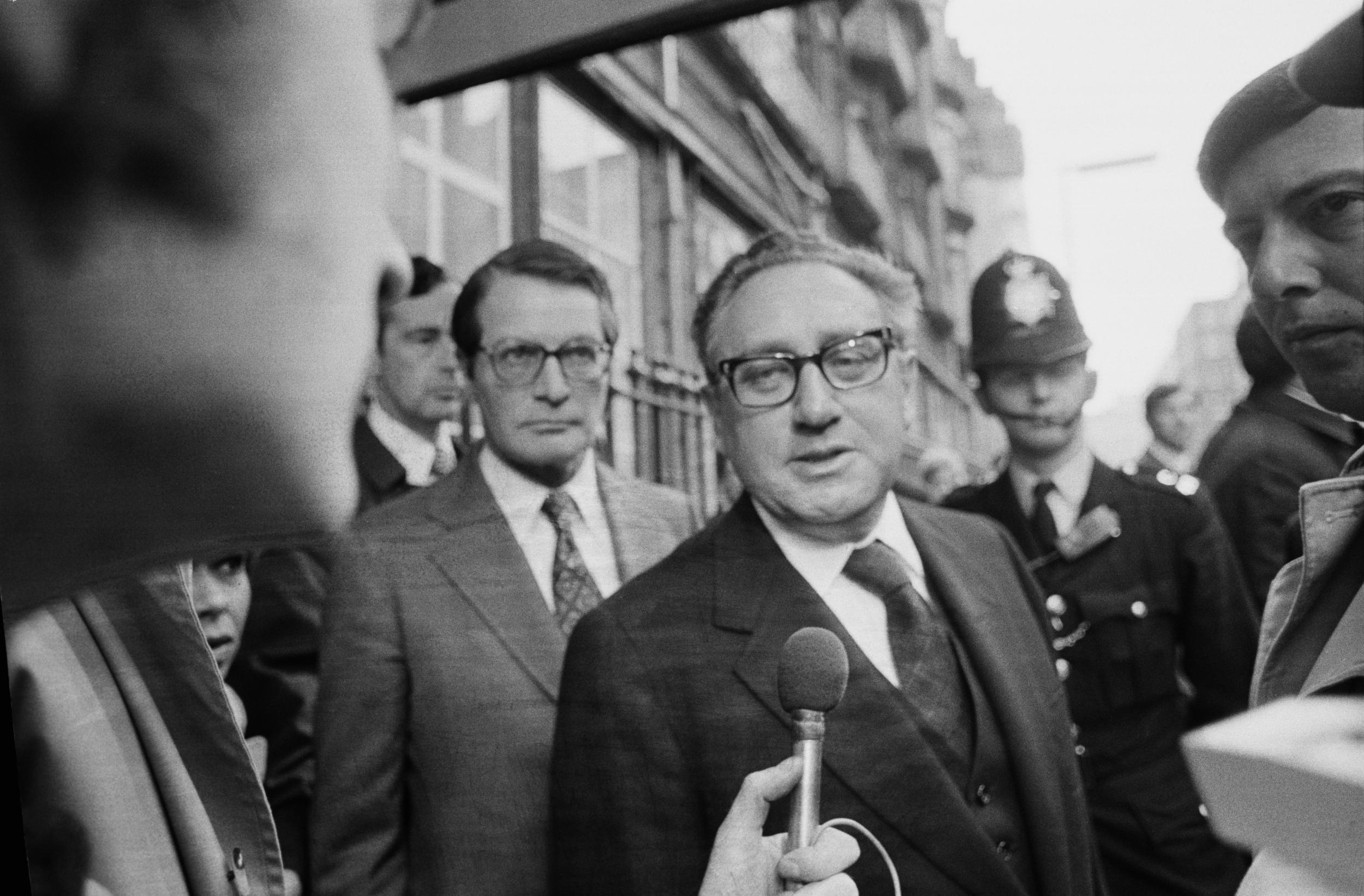
In the winter of 1973, Kissinger addressed the elite transatlantic Society of Pilgrims in London – who describe themselves as “one of the principal custodians of what has come to be known as the Special Relationship”. Kissinger talked of “the whole network of intangible connections that have been the real sinews of the transatlantic and especially the Anglo-American relationship.” He said: “We in this room are heirs to a rich heritage of trust and friendship.”
This “rich heritage of trust and friendship” is a softer way of saying the Anglo-American empire, the last great flowering of which is the Nato alliance. A military and economic alliance which is underpinned by the interlocking empires of Anglo-Dutch-American banking and oil. Which is all just another way of spelling Bilderberg.
Professor Curry says: “The prominence of Kissinger in the Bilderberg Group suggests that the very definition of world order and international peace requires the ability of the United States to build consensus concerning the ideas of democracy, human rights and equality through economic relations and ever-advancing technology.” Bilderberg might be open to “ever-advancing technology” but its doors seem firmly shut to anything that might threaten this western consensus and “our common purposes”.
On this subject of “trust and friendship”, Bilderberg today says that its discussions take place in “an environment of trust”, and that one of the fruits of these discussions is networking: “The conferences facilitate the development of a network of personal relationships to be formed between individuals of responsibility and influence.”
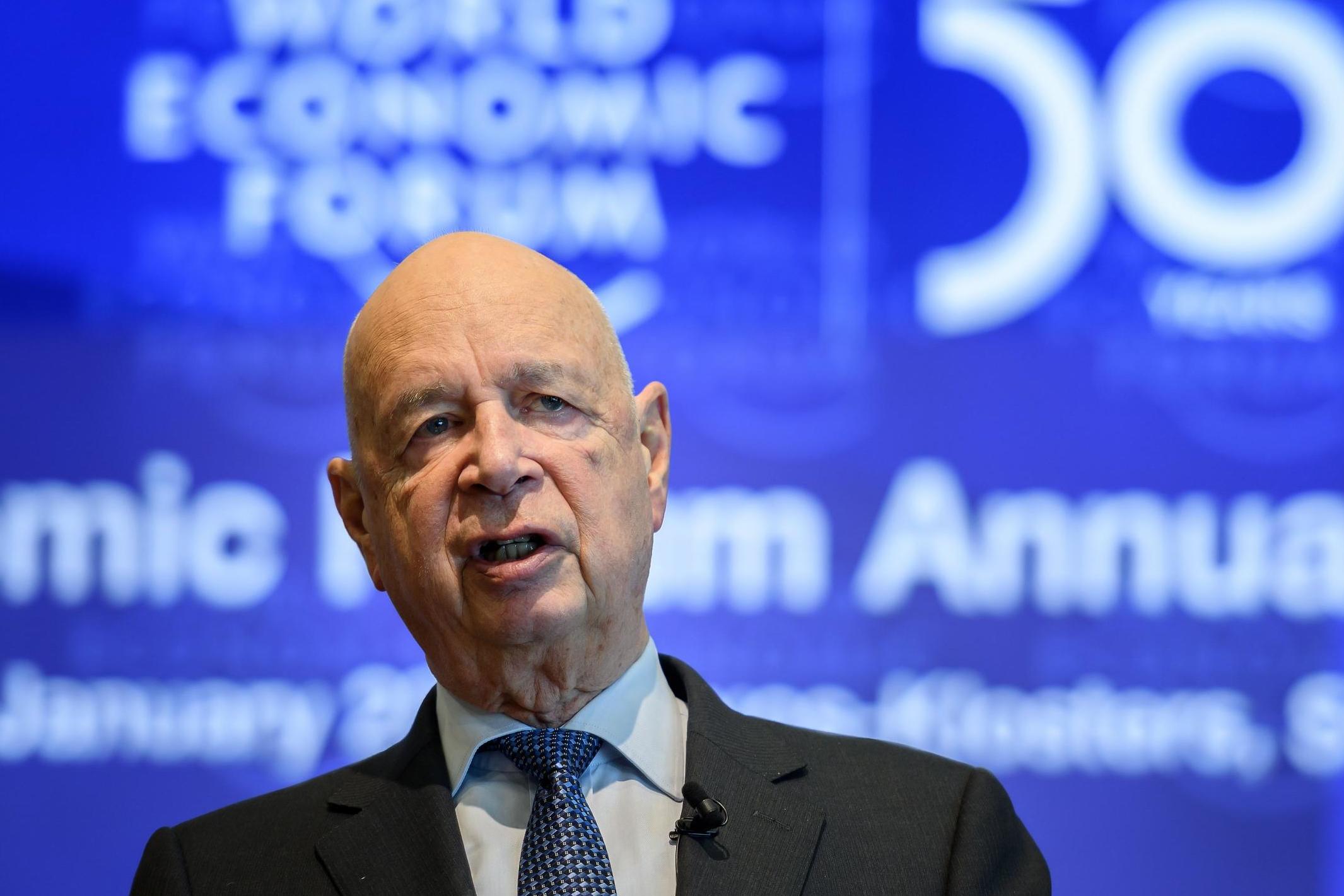
This “network of personal relationships” is precisely what Kissinger was enthusing about to the Pilgrims in 1973: “Close and intangible ties of trust and communication that took decades to develop and that have served our common purposes well.”
Bilderberg regular and Kissinger biographer Niall Ferguson, the Harvard historian and asset manager, waxes lyrical about “Kissinger’s unique talent for networking” and “his preternatural connectedness”. Ferguson, writing in Politico in 2018, says Kissinger, from the outset, knew that “informal networks could provide diplomatic channels superior to foreign ministries and embassies”. These networks, these “close and intangible ties of trust and communication”, help to build and maintain a kind of upper-echelon stability in transatlantic politics and beyond.
It’s no wonder, with “back channels” playing such an important role in world affairs, that western intelligence services have been a part of Bilderberg from day one: they’re a vital part of this strategic continuity. The group was set up in the mid-1950s as a joint British-American intelligence operation, by such high-level intelligence figures as Sir Colin Gubbins – the head of SOE, the British espionage and sabotage unit in WW2. Even today, the former head of MI6, Sir John Sawers, is on the steering committee – as well as being on the board of BP. Sawers was still in charge at MI6 when he first attended in 2014. Numerous serving US national security advisors have attended – including Kissinger, of course.
The prominence of Kissinger in the Bilderberg Group suggests that the very definition of world order and international peace requires the ability of the United States to build consensus concerning the ideas of democracy, human rights and equality through economic relations and ever-advancing technology
Newcomer to the Bilderberg board William J Burns, the former US deputy secretary of state and current president of the Carnegie Endowment, was in 2014 awarded the CIA’s “Agency Seal Medal” which is “for non-agency personnel … who have made significant contributions to the agency’s intelligence efforts”. His memoir is literally called Back Channels.
And so, coming back to the question of diversity, it’s hardly a surprise to me that where “connectedness” underpinned by trust is so cherished, change and diversity aren’t embraced. This kind of “old boy network”, that is completely enmeshed with the intelligence services, operates as an inside-track against outsiders; it relies on longstanding relations and diplomatic discretion. This is where lack of diversity, rather than being a drawback, might be considered a value. Sameness seems reassuring. Overlapping becomes a strength.
Take Vernon Jordan – Bilderberg’s first black governing board member, and the first African American to sit on a Fortune 500 company board. Like Mellody Hobson, Jordan was a Rockefeller Trustee before he was welcomed onto Bilderberg’s governing board. In 2002, Fortune magazine described Jordan as “a consummate networker” who is “impeccably connected”. Trusted enough to be made a CIA adviserin 2009. You can see why he was such a good fit for Bilderberg.
“The ultimate Washington insider” is how The Washington Post described Jordan in 1998. They said he was “not only a master fixer, but President Clinton’s closest confidant”, and provided this fascinating detail: “It was Jordan who first introduced then-Governor Clinton to world leaders at their annual Bilderberg gathering in Germany in 1991. Plenty of governors try to make that scene; only Clinton got taken seriously at that meeting, because Vernon Jordan said he was OK.” It’s like a scene from Goodfellas: he’s okay, he’s one of us, he’s good, he’s one of the family.
Bilderberg’s policy of promoting insiders suddenly makes sense. It’s not just laziness or fustiness: there has to be some strategic rationale, some reason why it would profit them, so maybe it’s this. The transatlantic economic and military system has imperial roots (roots which are profoundly and historically white European), and the curation of this system in the present day is built on the idea of elite networking. Keeping the show on the road involves keeping the door firmly shut to outsiders.
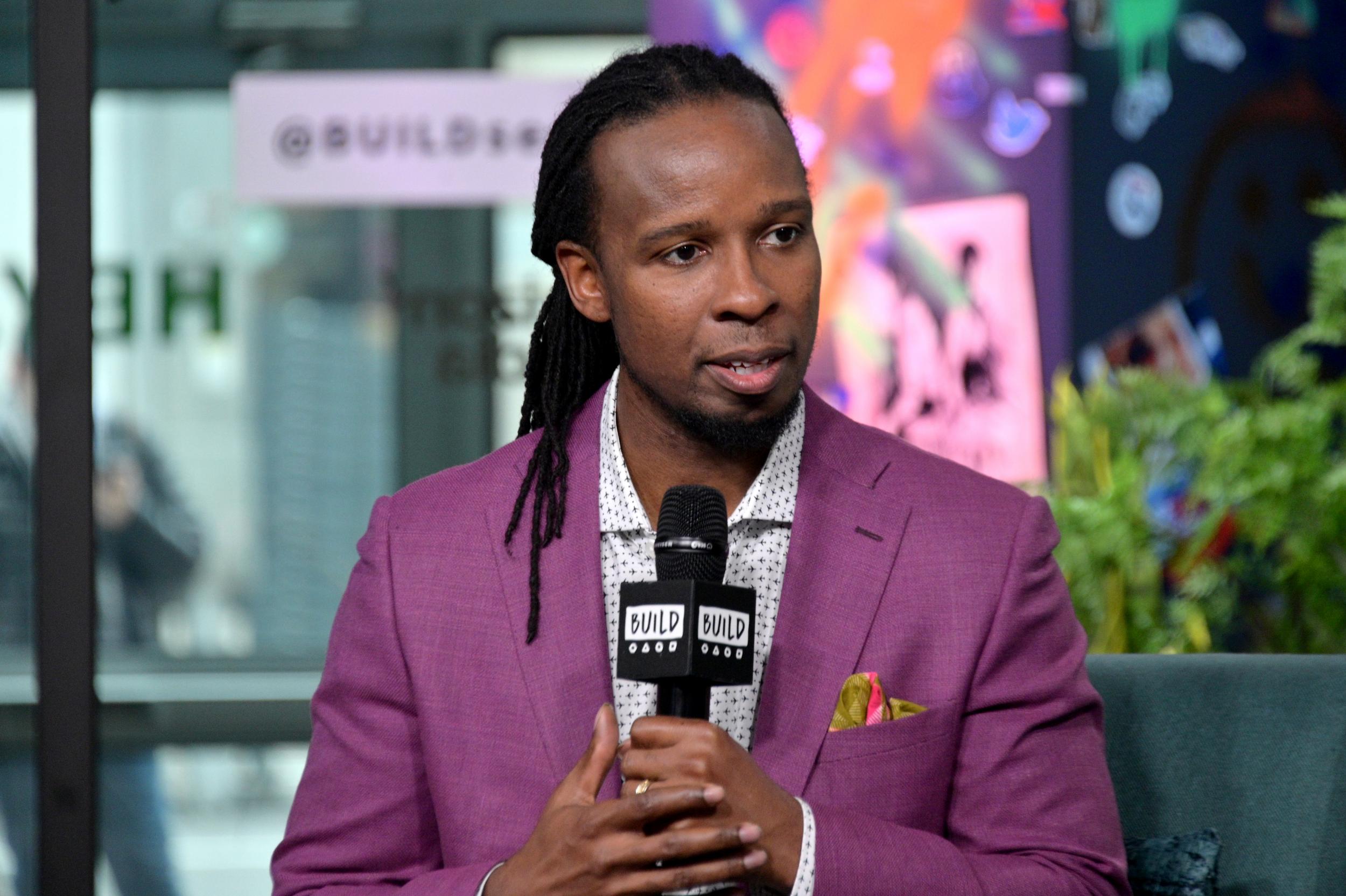
On this, Professor Curry remarks: “Lack of diversity indicates a kind of hierarchy of the people who rule, versus the darker nations who are ruled over. To have something like this, behind closed doors, with so many major players – to me this really does raise issues as to how the world’s broken up, and how darker nations are kept on the periphery.
“The world is in chaos,” said Kissinger in 2014. And it’s hardly getting any less so. It’s also becoming much more aware of structures of racism and empire. Bilderberg can’t keep white-knuckling it through global crisis after global crisis, promoting one black person to its leadership every couple of decades. Something has to give. The group has fallen out of step with 21st-century politics and with people’s awareness of structural bias in society.
“If they had genuine interest in diversifying,” says Maya Beasley, “it would be easy to engage a consultant or search firm with genuinely diverse networks to identify a lengthy list of candidates.” But an outside consultant would be anathema to them. And anyway, they’ve got the perfect person to lead their diversification already on the inside.
Mellody Hobson told the following anecdote back in February, during a podcast recorded as part of Black History Month: “There was one point when we [Ariel Investments] owned 30 per cent of Sotheby’s … Because we were such a large shareholder, we asked them about their board. We probed them on their management teams … They had an all-white-male board. Because of us and our questioning, they diversified their board. We didn’t pick the people that went on the board … But we did say: this is important to us.”
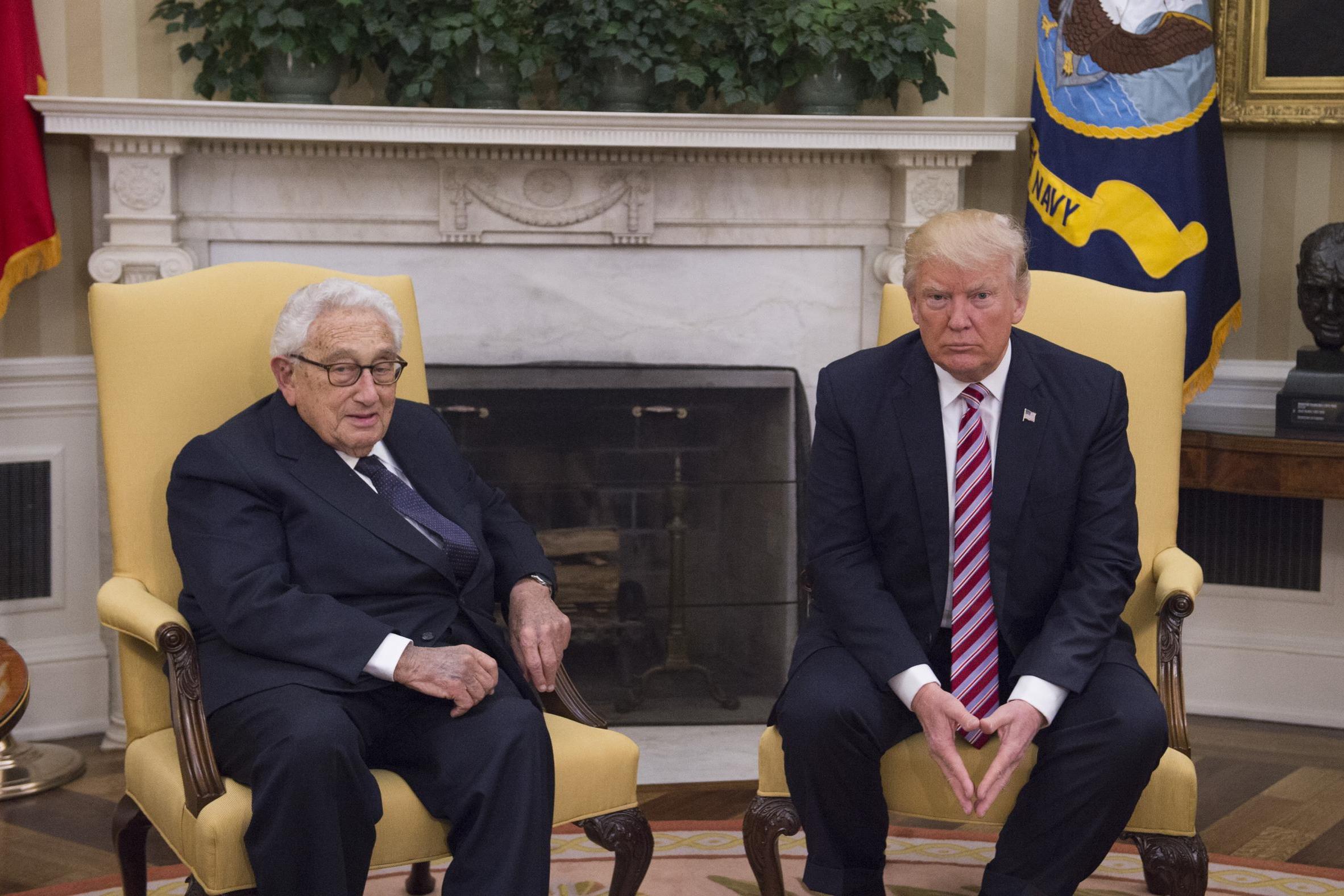
Sotheby’s is a deeply establishment organisation (its vice chair is the Duke of Devonshire), so shaking up its board is perfect practice for diversifying Bilderberg. Sharmila Mehta wonders whether we’ll see “a more vocal response from Hobson on this issue. Or is it that once you’re in the ‘club’ that’s enough of a prize and you buy into the accepted values of the forum?” Presumably if one of the accepted values of the forum is the ongoing exclusion of black and brown faces from their leadership, Hobson would want to change this.
Hobson believes passionately that “diverse boards matter”. So much so that, in 2002, she and Ariel Investments co-created the Black Corporate Directors Conference, where everyone who attends is a black board member of a top US corporation. Hobson calls it “our version of an Allen and Company conference” (referring to the annual Sun Valley media and finance conference, frequented by media moguls and tech billionaires).
Her impetus was simple: “We said, we’ve admired this problem long enough … we’ve sat and talked about diversity and inclusion … what are we doing to do about it instead of just talking about it?” When it comes to diversity, Hobson is all about getting things done, and often quotes Yoda’s dictum: “Do or do not, there is no try.” So what can be done about Bilderberg?
Lack of diversity indicates a kind of hierarchy of the people who rule, versus the darker nations who are ruled over. To have something like this, behind closed doors, with so many major players – to me this really does raise issues as to how the world’s broken up, and how darker nations are kept on the periphery
In my view, the first thing to do, without delay, is get some more diverse faces round the table. Obvious first choices would be the 2019 attendees Satya Nadella, the CEO of Microsoft, and Darren Walker, the president of the Ford Foundation and ex-VP of the Rockefeller Foundation – both of them a safe pair of hands. Or they could tap Laura Cha, a director of Unilever who, crucially, sits on the board of HSBC alongside the chair of Bilderberg’s steering committee, Henri de Castries.
But perhaps the group would want to continue their pivot towards tech and AI: two-time participant Divesh Makan, the tech financier known as “the spider of Silicon Valley”, would be an interesting choice, but a more likely pick would be conference favourite Demis Hassabis of Google DeepMind, a protégé of steering committee member Eric Schmidt. Perhaps even more suitable is the other co-founder of DeepMind, Mustafa Suleyman: he was there in Montreux and recently found a place on the arch-insider Economist board, alongside steering committee members John Elkann and Economist editor Zanny Minton Beddoes. So he’s obviously doing something right.
But any such appointment would only be a first step. Hobson will have to go deeper to solve Bilderberg’s decades-old problem with race.
In 2018 when Starbucks faced a race crisis over the treatment of two black men in a store in Philadelphia, Mellody Hobson took the lead: she got in front of the story, appearing on TV news saying: “We’ve got to make this right.” She led the company’s racial bias training. Hobson realised: “This is a teachable moment for our entire company.”
Perhaps she could do the same for Bilderberg: use its chronic lack of diversity as a teachable failure, and lead a racial bias workshop at the next board meeting. The conversation might be awkward, but as Hobson said in her Ted Talk: “I think it’s time for us to be comfortable with the uncomfortable conversation about race.” So where should the conversation begin?

She could start, perhaps, with the idea that Bilderberg has put forward in recent years, that it’s an educational enterprise. The main conference hall is set up a bit like a classroom. According to a spokesperson for the group, participants at the conference “learn about geopolitics, technology, megatrends”. The Bilderberg Association, the group’s UK arm which operates as a charity, is classified as an “educational/training” body. Its stated aim is “to promote the study of and public education in international affairs, economics and the social sciences”.
But if Bilderberg is engaged in education, its problem with diversity becomes even more acute. It suddenly finds itself in a world dictated by professional ethics. Professor Curry says: “There’s no way to test or measure the behaviours of these groups. There’s no ethics board that I could find, that had access to the minutes or papers, I don’t see any oversight whatsoever.”
Bilderberg is busily engaged in privately educating our “decision-makers” – “informing and enriching subsequent national debate and decision-taking” – but has made no statement about its ethics beyond saying that the conference is conducted in “an environment of trust”. And as for oversight, it’s spent considerable money and energy over many decades trying to avoid it
So, Hobson’s next action point would be appoint an ethics board of external experts who have access to the conference reports, and who report to the public.

Bilderberg, it has to be said, doesn’t have the easiest relationship with ethics. It’s not like steering committee members are all angels. Over the years they’ve dabbled in fraud (Conrad Black), Libor fixing (Marcus Agius), arms company lobbying (Prince Bernhard), creating private armies (Sir Frederic Bennett) and faced assorted allegations of war crimes (Henry Kissinger). So, the ethics board should consist of external appointments, ideally at a bit of a professional distance from the group (ie not just a panel of Shell and HSBC directors and Rockefeller cousins). And needless to say, this ethics board should be a lot more diverse than Bilderberg currently is
Hobson should also push Bilderberg to publish a clear statement of ethics and a code of conduct both for the steering committee and for the conference participants. In fact, she’s already suggested this as a way forward. In a conversation at Google about diversity she referred to the Princeton “Honour Code”, which is overseen by the university’s Honour Committee. She says people should “adopt an Honour Code around these issues” of race and diversity, and then “say we’re actually going to take it upon ourselves that when we actually see this injustice we’re going to call it out”.
There will almost certainly be resistance from within Bilderberg, but as Hobson says, when it comes to diversity, “you’ve got to force it”. It is one of Hobson’s most keenly held life principles that you should “speak your truth, whatever it is … whatever your truth is, I think you should speak it, speak it out loud, don’t hold it inside … say what you believe, if they don’t accept it at least you tried.”
Not enough voices are being raised on the subject of boardroom diversity for Hobson’s liking: “My soul is being crushed by the people who are not speaking up.” She urges people: look around at your environment, and “if you don’t see any diversity, change it”. She knows that “this is going to take bravery”, but “if we truly believe in equal rights, in equal opportunity, we can’t afford to be colorblind, we must be color-brave.” It’s time to find out if Hobson is color-brave enough to make a difference at Bilderberg.
If Hobson can’t persuade them to change, then maybe they need to get Vernon Jordan back in. A few years ago, in 2014, as a member of the CIA’s External Advisory Board, he was commissioned by the then director of the CIA John Brennan to run the agency’s “Diversity in Leadership Study”. (Having left the CIA, Brennan attended the 2017 Bilderberg conference as a senior adviser at Kissinger Associates, the world’s most spook-laden firm: a nice bit of overlapping).
This kind of diversity in leadership action is the kind of thing Jordan’s been doing for decades. In his memoirs, he recalls a night in November 1971 when “the National Urban League was hosting its annual Equal Opportunity Day Dinner”. Jordan, as president of the NUL, and with two Bilderberg conferences already under his belt, addressed a room full of corporate supporters and CEOs: “This was, I thought, the perfect place to deliver a message that was long overdue. The time had come for the corporations of America to demonstrate a real commitment to bringing blacks into full participation in society by integrating their own boards of directors. Addressing the corporate titans specifically, I said it was wonderful to see them there, but it was not enough for them to come to our dinners. It was not enough for them to give money. If they were serious about equal opportunity, they could set the tone for the rest of the country by extending this ideal to the boardroom.”
Perhaps Vernon Jordan could deliver this same message, that he delivered in New York half a century ago, to Bilderberg today. It’s time this “ideal” of racial integration was extended to the leadership of Bilderberg. You might even say it’s long overdue.
It’s a sad sign of how grimly resistant the group is to fixing its racial imbalance that these two heroes of diversity, Jordan and Hobson, who have made such an impact outside Bilderberg, seem to have made no impact whatsoever inside the group. And if neither Hobson nor Jordan can’t persuade the group to modernise, then it will be up to activists outside the sacred circle, such as the National Urban League or Involve or the African American Leadership Forum or Black Lives Matter, to apply the necessary pressure. Alongside Ben and Jerry’s, obviously.
And if Bilderberg simply won’t change, then it has no business playing any part in 21st-century politics and decision-making. It should just disband, shut up shop, and consign itself to the history books, where it seems to want to belong.
Join our commenting forum
Join thought-provoking conversations, follow other Independent readers and see their replies
Comments